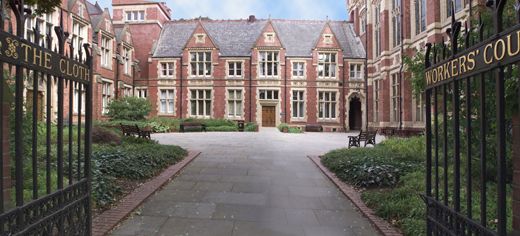
Researchers from the University of Leeds are to play a key role in exploring how arts and culture contributes to sustainable prosperity.
Kate Oakley, Professor of Cultural Policy at the University’s School of Media and Communication, will be leading the research on behalf of the newly established Centre for the Understanding of Sustainable Prosperity (CUSP), announced today.
Hosted by the University of Surrey, CUSP aims to examine the complex relationship between prosperity - our aspirations for the good life - and sustainability - the social and environmental constraints of a planet with finite resources.
Professor Oakley will explore the role of the arts in communicating sustainability, and look at how culture is a vital element in wealth creation.
“Essentially, the project is asking how we can develop our economy in a way that is not environmentally and socially destructive,” she said.
“It’s great to see a role for the arts and culture in this broad discussion about sustainable prosperity. This new Centre will draw on Leeds’ strengths in examining the role of culture in the ‘good life’, work in the cultural sector and in communities.”
Led by Surrey’s Professor Tim Jackson, an internationally-renowned expert in sustainable development, CUSP is a £6m five-year research programme funded by the Economic and Social Research Council (ESRC) that will start next January.
Professor Jackson said: “This is a tremendously exciting and very timely opportunity. Our guiding vision for sustainable prosperity is one in which people everywhere have the capability to flourish as human beings – within the ‘safe operating space’ of a finite planet.
“CUSP’s work will be to elaborate that vision, test its viability and explore its social and economic implications.”
The research programme will pay particular attention to the pragmatic steps required to achieve sustainable prosperity. The Centre will engage with business, government and civil society in order to explore practical actions and propose supportive policies.
A core element in this engagement will be a wide-ranging international dialogue to be chaired by Dr Rowan Williams, former Archbishop of Canterbury and Master of Magdalene College, Cambridge.
An overview of the Centre’s guiding vision and more detail on the work programme can be found online: http://www.cusp.ac.uk/. Interested readers can also follow CUSP’s plans on Facebook, Twitter and LinkedIn.
Further information
CUSP includes academic partners from the University of Leeds, Anglia Ruskin University, Keele University, Goldsmiths College London, Middlesex University , York University (Canada) and the University of Canterbury (New Zealand). Non-academic partners include the Aldersgate Group, an alliance of leaders from business, politics and society that drives action for a sustainable economy, together with and a wide range of business and cultural organisations.
The programme is split into five themes:
- Theme A, led by the University of Leeds, explores the role of the arts and of culture in our society. Research will look not only at the role of the arts in communicating sustainability but at culture as a vital element in prosperity itself.
- Theme M explores the moral framing and contested meanings of prosperity itself. Taking a broadly philosophical approach it will examine how people, enterprise and government negotiate the tensions between sustainability and prosperity.
- Theme P addresses the politics of sustainable prosperity and explores the institutional shifts that will be needed to achieve it. Researchers will work closely with both corporate and social enterprise to test new models of sustainability for business.
- Theme S1 explores the social and psychological dimensions of prosperity. Academics will work with households and individuals in order to understand how people negotiate their aspirations for the good life. As part of this theme, they will engage with UNEP in a major study of young people's lifestyles across the world.
- Theme S2 examines the complex dynamics of social and economic systems on which sustainable prosperity depends. It will address in particular the challenge of achieving financial stability and high employment under conditions of constrained resource consumption.
For interviews with Professor Kate Oakley, please contact Gareth Dant, University of Leeds Press Officer, on 0113 3433996 or email g.j.dant@leeds.ac.uk
For further information on CUSP, contact Amy Sutton, Media Relations Officer, on a.sutton@surrey.ac.uk, 01483 686141.